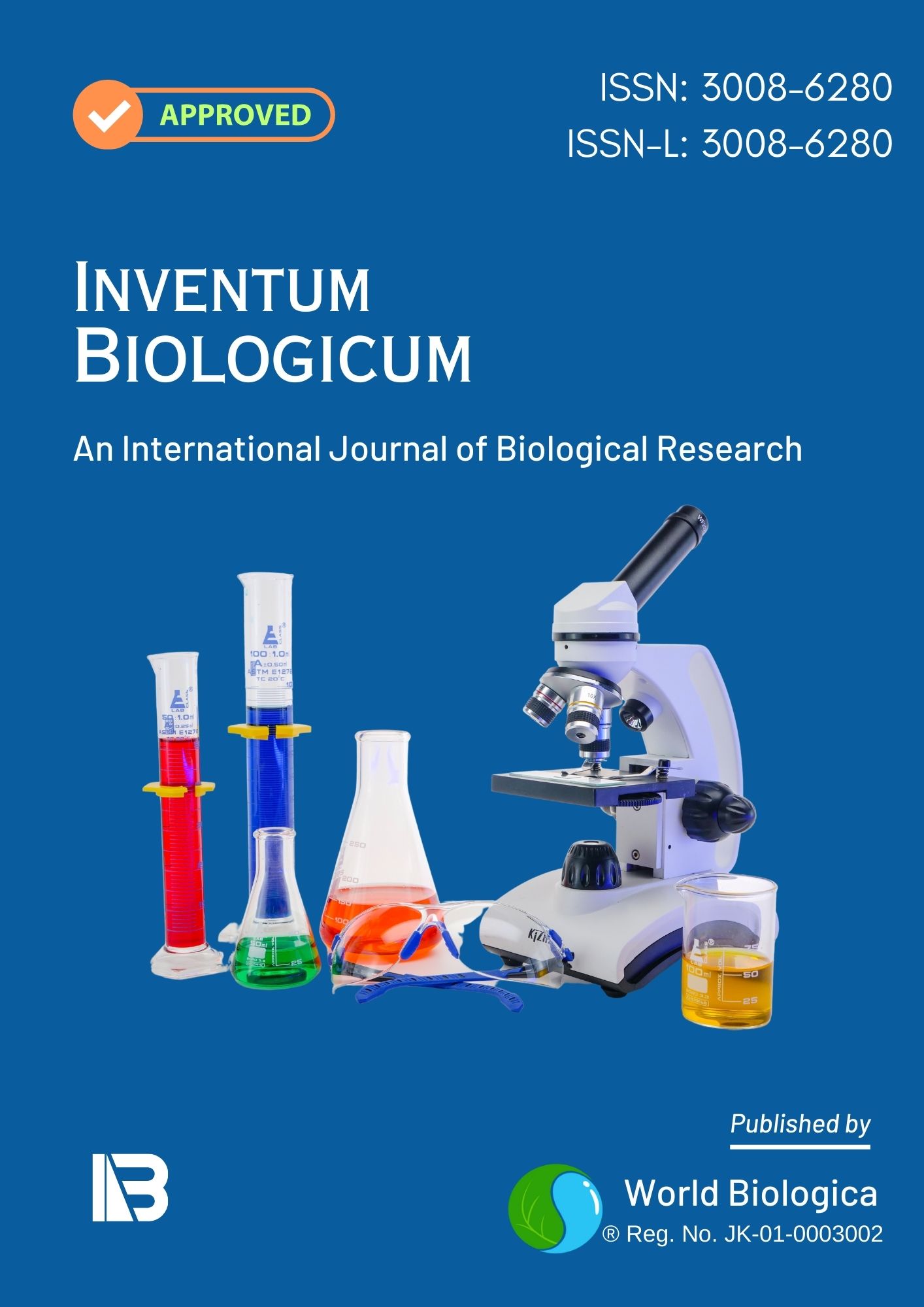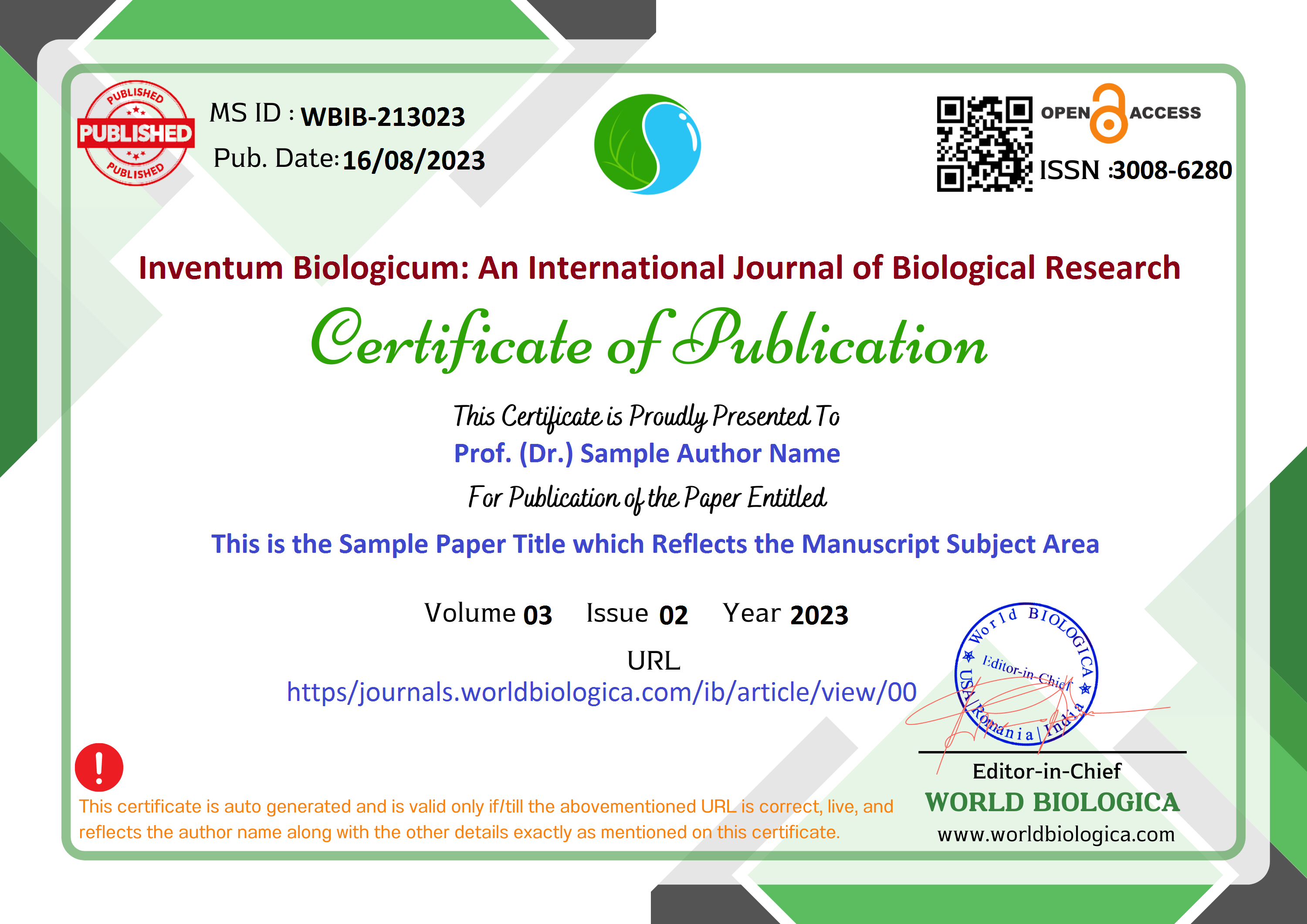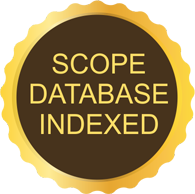
Journal Policies
PUBLICATION ETHICS
Inventum Biologicum is committed to maintaining the highest standards of publication ethics. All participants in the publication process, including authors, editors, reviewers, and the publisher, are expected to follow ethical guidelines to ensure the integrity of the scholarly record.
Authors must ensure their work is original, properly cited, and free from plagiarism. They should confirm that their manuscript has not been published or submitted elsewhere. All individuals listed as authors must have made significant contributions to the research, and any conflicts of interest must be disclosed. Authors are responsible for ensuring the accuracy of their data and presenting it transparently, without fabrication or falsification.
Reviewers must treat manuscripts as confidential and not disclose or discuss them with others. Reviews should be conducted objectively and constructively, avoiding any personal bias or conflict of interest. Reviewers should identify any relevant published work that the authors have not cited and alert the editor to any concerns about ethical issues or misconduct.
Editors are responsible for making fair and unbiased decisions on manuscript submissions based solely on their academic merit and relevance to the journal's scope. Editors must ensure a transparent peer-review process, maintain confidentiality, and address any ethical concerns or allegations of misconduct promptly and thoroughly.
The publisher supports the editorial team in ensuring ethical publishing practices and will investigate any cases of suspected misconduct. The journal follows the guidelines set by the Committee on Publication Ethics (COPE) to address ethical issues and uphold academic integrity.
PUBLICATION MALPRACTICE STATEMENT
Inventum Biologicum strictly opposes any form of publication malpractice and is dedicated to identifying and preventing unethical behavior at all stages of the publication process.
Authors must not engage in unethical practices such as plagiarism, data fabrication, or falsification. Submitting the same manuscript to multiple journals simultaneously or publishing the same research in more than one journal without proper justification is prohibited. Authors are required to disclose any conflicts of interest that might influence the interpretation of their work.
Reviewers must ensure their evaluations are fair, unbiased, and based solely on the manuscript’s academic merit. They should avoid reviewing manuscripts where they have a conflict of interest. Reviewers must not use any unpublished material disclosed in a manuscript for their own research purposes.
Editors must ensure that decisions on manuscripts are based on objective criteria and are free from any commercial, personal, or political influence. Any suspected cases of ethical violations, including plagiarism or data manipulation, will be investigated thoroughly. The editorial team reserves the right to retract or correct articles if ethical breaches are identified post-publication.
The publisher is committed to supporting ethical publishing practices and will collaborate with authors, reviewers, and editors to address any allegations of misconduct. The journal adheres to COPE guidelines to ensure fair and transparent handling of all ethical issues.
GENERATIVE AI POLICY
Inventum Biologicum: An International Journal of Biological Research recognizes the growing role of generative artificial intelligence (AI) tools in research and manuscript preparation. While these tools can assist authors, it is essential to maintain ethical and transparent practices. Our policy outlines how generative AI tools can be responsibly used in the manuscript creation process.
- Permitted Uses of Generative AI Tools
Authors may use generative AI tools for specific tasks, including:
- Language editing and grammar correction.
- Enhancing clarity and coherence of text.
- Generating visual aids, such as figures or graphs, if appropriately attributed.
- Prohibited Uses of Generative AI Tools
Generative AI tools must not be used for:
- Creating fabricated data, results, or references.
- Generating content that lacks originality or academic rigor.
- Writing the entire manuscript or significant portions of it without proper oversight.
The primary intellectual and scholarly contributions must come from the authors, not AI tools.
- Disclosure Requirements
If generative AI tools are used during manuscript preparation, authors must:
- Clearly disclose the specific tools and purposes in the Acknowledgments section of the manuscript.
- Include details about how the outputs from AI tools were verified for accuracy.
Example of disclosure:
"We utilized [AI Tool Name] for language editing and improving grammatical accuracy. The authors ensured that all scientific content, results, and conclusions were independently reviewed and verified."
- Accountability
Authors are solely responsible for the integrity, originality, and accuracy of the content generated using AI tools. Misuse of AI tools that leads to plagiarism, ethical violations, or inaccurate findings will result in the rejection of the manuscript or retraction of the published paper. - Generative AI in Peer Review
Reviewers are discouraged from using generative AI tools to evaluate manuscripts. If AI assistance is employed, reviewers must disclose its use to the Chief Editor, ensuring transparency in the review process.
Inventum Biologicum is committed to fostering ethical, transparent, and responsible research practices in an evolving technological landscape. Adherence to this policy ensures the credibility and academic integrity of all published work.
















